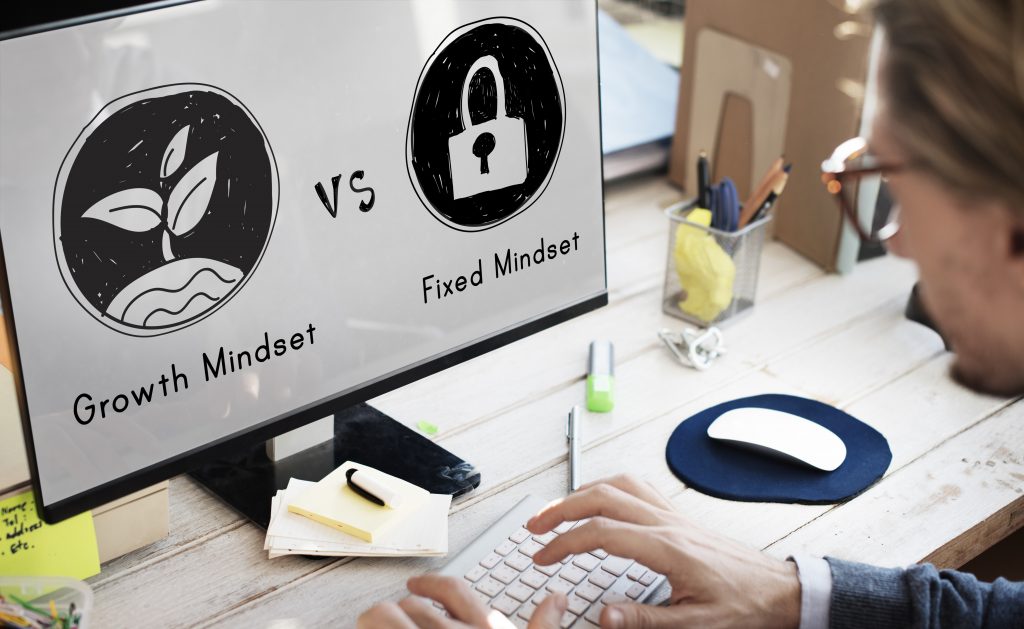Metals are malleable, and they can change shape. Likewise, human intelligence or our ability to learn is also malleable. Decades of educational neuroscience research have proven that when children become aware that their intelligence is malleable, their level of motivation to learn soars. But their motivation may hamper if they start to believe their abilities or intelligence are fixed by nature.
According to Dr. Carol Dweck, Researcher, Author, and Stanford Psychologist, there are two different outlooks on learning; fixed mindset and growth mindset. These mindsets definitely have a profound impact on children’s success in education and beyond. If children have a fixed mindset, they believe that they are born with fixed intelligence or abilities, and their personal efforts have very little impact on those abilities. However, children with a growth mindset believe that their intelligence can improve and grow to new heights over time through perseverance, guidance and effort.
Students with a growth mindset have higher motivation and self-esteem to learn from mistakes and seek out challenges from an early age. Even while following a rigorous curriculum, students with a growth mindset find it energizing and exciting, leading them to success. They understand that working out the brain can increase their learning potential, strength and agility.
How can students shift to a growth mindset?

Thanks to malleable human intelligence, students can shift to a growth mindset. Teachers and learning coaches can play a vital role in helping students to acquire a growth mindset by modelling study skills and strategies. Rather than offering generic praise to students, teachers and learning coaches will have to integrate prompt questions throughout their lessons. Here are a few questions teachers can ask to encourage a growth mindset for students. Thanks to malleable human intelligence, students can shift to a growth mindset. Teachers and learning coaches can play a vital role in helping students to acquire a growth mindset by modelling study skills and strategies. Rather than offering generic praise to students, teachers and learning coaches will have to integrate prompt questions throughout their lessons. Here are a few questions teachers can ask to encourage a growth mindset for students.
- What happened today that made you keep going?
- How have you prepared yourself to learn today?
- What mistake did you make today, and what did they teach you?
- What did you do today that made you try hard?
- What else do you want to learn?
- What will you do to solve this problem?
- What learning strategies did you use today?
Activities to Trigger Growth Intelligence
Even the greatest minds in history have experienced significant setbacks, but they overcame them and accomplished their dreams and goals. Making students understand that failure is not the last stop always and how they can accomplish even greater success by starting right from that failure will motivate them to learn from their mistakes, accept them and grow from them, better and bigger. Motivate children to note down their daily accomplishments and feelings. This will help them to visualize their growth and future goals and eventually to stick with their growth mindset. Planned activities and questions encourage students to analyze the way they learn and self-reflect on their actions. This analysis helps students to recognize challenges as a positive part of continuous growth. They will understand that practice in the form of repetition can enhance the potential for growth and hone skills.

As a positive growth mindset reinforces students’ learning process and reveals their true potential and intelligence, we at ODM Global School are providing our students with special value-based and 360-degree learning education that can help them grow and thrive through a growth mindset. As one of the top CBSE schools in Odisha with a special focus on modern education, we strongly believe intelligence can grow when the right motivation and engagement are given and ultimately delivers achievements for all.
